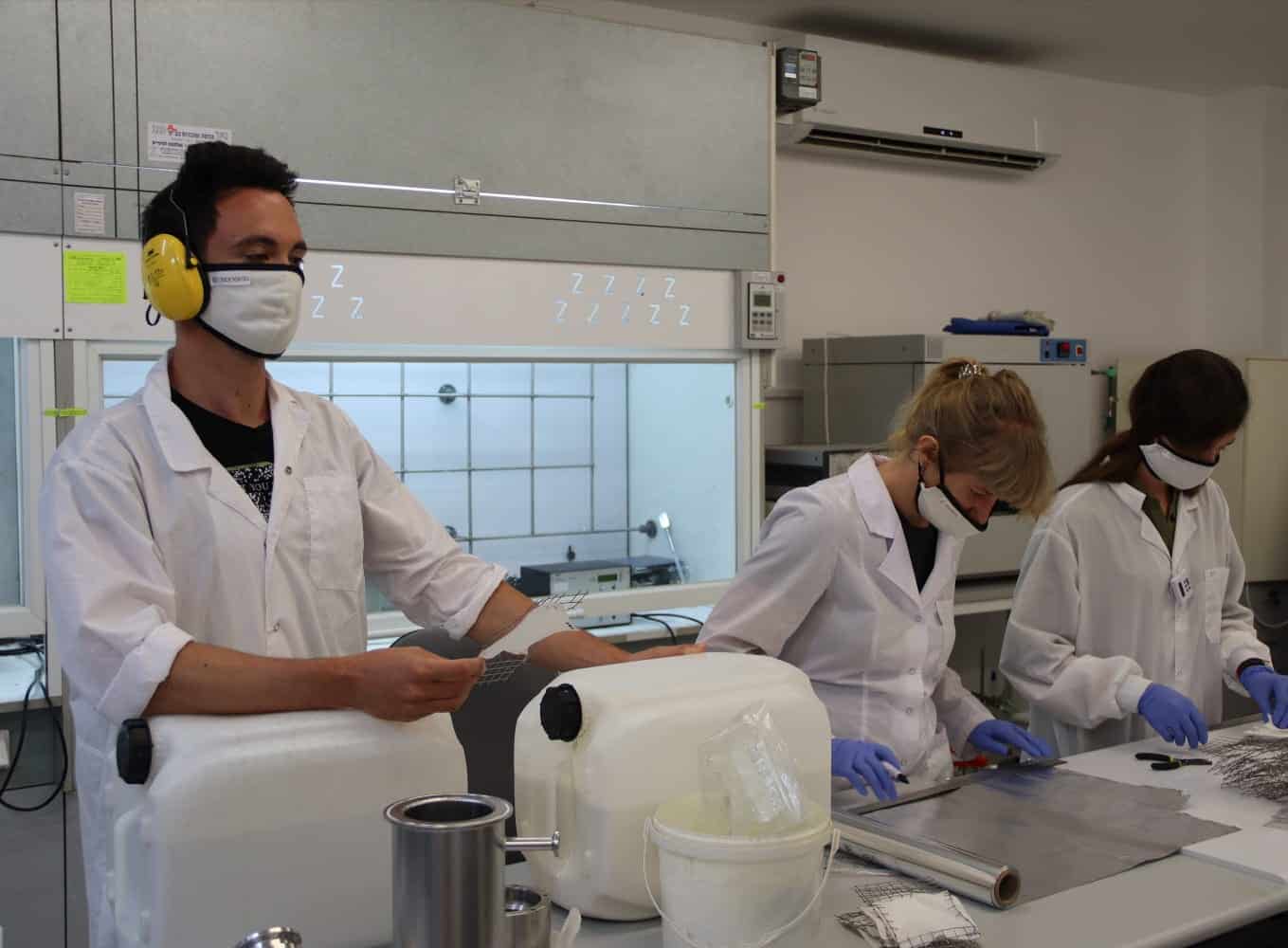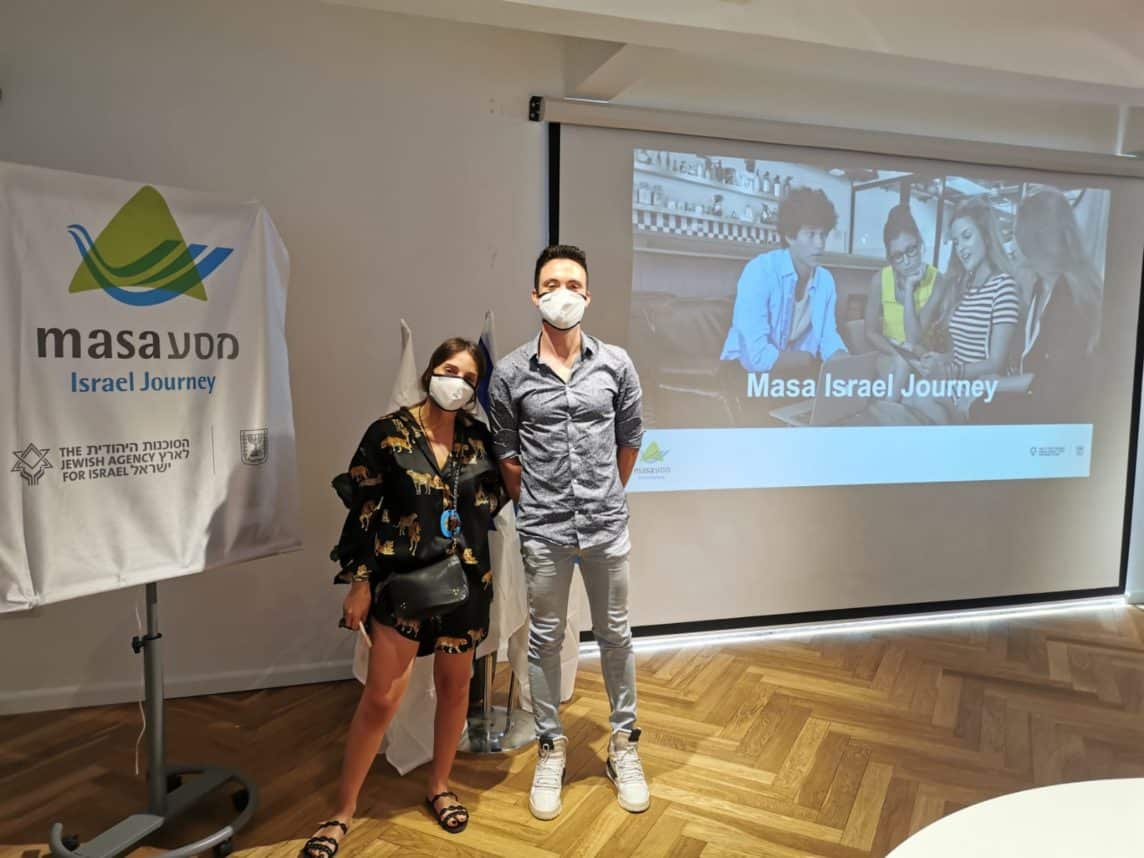
The coronavirus threw veterinarian Jason Migdal a curveball. London-based Migdal, who has a master’s degree in medical microbiology and public health, decided to join a five-month program run by Israel Experience — an educational tourism provider for Masa Israel — that brings thousands of young Diaspora Jews to Israel every year. The program matches young professionals with paying jobs.
Migdal began working for Sonovia, a company that develops antimicrobial textiles. “If it wasn’t for the pandemic, I probably would have gone back [to London] in April after the program,” Migdal said, “but by that time, we were already so involved in the technology that it didn’t bother me that I couldn’t get home.” The team behind Sonovia realized how crucial its invention was in the coronavirus landscape, and Migdal was promoted to microbiology research and development strategist, and the company began producing antiviral masks.

According to Migdal, the SonoMasks, as they’re known, are able to fend off harmful microorganisms using zinc oxide, which has antiviral properties. The zinc oxide mechanically is infused into the textile using patented ultrasound technology and “constantly produces a positive charge, almost like an electrical field and reacts with the air to produce molecules that destroy the virus’ membrane,” Migdal said. “It’s a system that is continuously reproducing itself.”
The masks are made in a textile factory in the northern Israeli town of Nahariya. With regard to design, Sonovia works with students from the Shenkar College of Engineering and Design. The masks have been tested in labs in China and Austria and were found to have retained antiviral properties against COVID-19 even after 65 industrial washes.
When N-95 masks became a rare commodity in Israel, Sonovia donated around 3,500 of its masks to health care workers. It also donated to food banks, supermarket workers, Israel police and several nonprofits overseas. While taking care of front-line and essential workers was a top priority for the company, “At the same time, the general public needs a level of protection which is currently not being offered,” Migdal said, noting that standard masks run the risk of self-contamination.
He also noted the environmental aspect of the Sonovia masks. “Disposable masks fill landfills and beaches and contribute to microplastic levels,” he said. “The SonoMask is an ecological solution.”

Sonovia aims to roll out an industrial implementation with large garment manufacturers to produce clothes. For now, however, its main focus is battling the pandemic. The company hopes to leverage the sale of masks to reduce production costs and expand in order provide additional protective products including medical gowns and linen for hospitals. Among its investors is Europe’s leading textile machinery manufacturer, Brückner, which engineers the Sonovia machinery on commission.
Migdal credits Sonovia’s success to a sense of community shared by the team members. “I’ve been to Shabbat meals at my boss’ house and me and my [colleagues] go to the beach on the weekends,” he said. “It’s really a unique atmosphere. I feel almost as if it was a calling to come to Israel and even if I do go back home for a time, I will always feel like I have a home now in Israel …. I think that’s the greatest thing.”


































 More news and opinions than at a Shabbat dinner, right in your inbox.
More news and opinions than at a Shabbat dinner, right in your inbox.